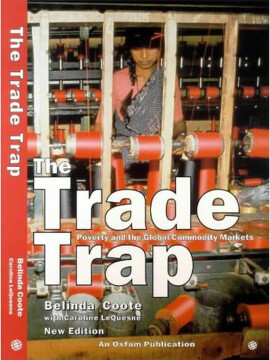
The Trade Trap
Poverty and Global Commodity Markets
This work explains how countries that depend on the export of primary commodities, like coffee or cotton, are caught in a trap: the more they produce the lower the price falls on the international market. If they try to add value to their commodities by processing them, they run into tariff barriers imposed by the rich industrialized nations. To make matters worse, they have to compete with subsidized exports dumped on the world market by rich surplus-product countries. This edition contains an additional chapter which reports on the outcome of the Uruguay Round of the General Agreement on Tariffs and Trade (GATT) and the creation of the new World Trade Organization. It examines the impact of rapid economic liberalization on the livelihoods and natural environments of poor communities and recommends ways in which trade could be regulated to protect their rights. The book explains the complexities of the world trade system and examines what poor countries can do about the trap in which they find themselves.
Published: 1996
Pages: 256
Paperback: 9780855983512
Belinda Coote
Belinda Coote joined AMREF UK as CEO in April 2011. She spent 18 years with Oxfam in a variety of roles both in the UK and overseas, including in Nepal, Bangladesh and South Africa. She has been Chief Executive of two organisations – Medical Aid for Palestinians (2002-6) and Lattitude Global Volunteering (2006-9). More recently she has been undertaking consultancies and interim management roles to support organisations through periods of change including for Merlin and EveryChild.





